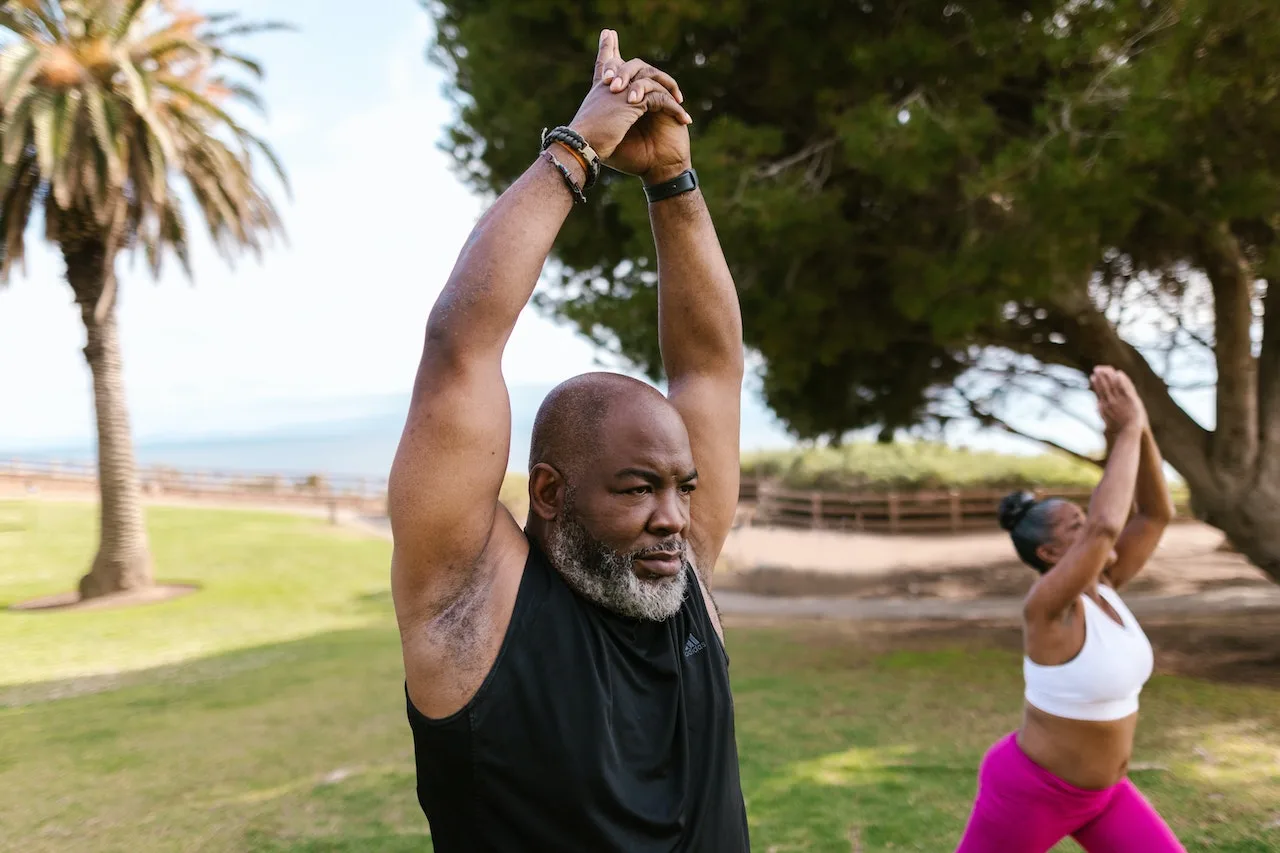The wellness industry has shifted, and it is no longer about achieving immediate results. Rather, there is now a greater emphasis on providing long-term benefits for one’s entire lifetime.
The new research continues to highlight the fact that staying fit has a cumulative effect – and it starts early on. The common thread seems to be less about how much physical activity you do, but rather the influence that consistent healthy habits add up to as you age.
On this 75th anniversary of World Health Day, where the World Health Organisation is advocating for Health for All, there are important nuances to consider. This includes access to wellness resources and the positive impact that interventions could have in the long term.
Starting Strong With Your Health
Recent research from Harvard Medical School has shown some promising cross-generational trends when it comes to the benefits of staying healthy – as early on as in utero.
Developmental programming is a field of research that investigates how environmental factors during critical periods of development, particularly during fetal and early life stages, can have long-term effects on an individual’s health and disease risk later in life.
The concept is based on the idea that early-life experiences can program an individual’s physiology and metabolism in ways that can lead to increased susceptibility to chronic diseases such as obesity, diabetes, and cardiovascular disease.
Our health system should extend to educating prospective mothers on looking after their health and well-being while pregnant, for the benefit of their children.
Growing well
The behaviors and patterns established when we are young have a far-ranging impact as we age. Greater levels of childhood physical activity (whether through organized sport or free play) lead to improved concentration, as well as gross and fine motor skills. This all correlates with successful performance throughout a child’s school career.
Living well is best started early, and the benefits are not only physical.
As published in the Journal of the American Medical Association, physical activity may help to ease depressive symptoms in children aged 11-19. Additionally, exercise had a positive influence on common co-morbidities. It also reduced incidences of anxiety and ADD.
Mental health conditions are prevalent throughout the world. Interventions in early childhood can have a significant knock-on effect on adult well-being. This is particularly relevant in the current age. For instance, the World Health Organization announced that, during the first year of the pandemic, the global prevalence of anxiety and depression shot up by a massive 25%.
Across the wellness spectrum, we must focus on interventions to keep our citizens healthy while they are young. This will reduce the healthcare burden on medical and social systems in the future.
Aging in Place
Moving into later phases of life, there are some shifts in trends that will shape the way we age as a global society.

Photo by Jason Briscoe on Unsplash
For one, people are living longer, so improving the quality of life for those in their 60s onwards is growing in importance. Also, individuals are looking to “age in place”. This means remaining independent for as long as possible, instead of cohabiting with family or relying on other institutional support systems.
That drive towards independence requires the physical ability to do so. Thus, maximizing the benefits of a healthy life makes this possible.
On the physical benefits of being active as an adult, studies are showing significant results. The British Journal of Sports Medicine recently published a paper that recommended all adults engage in both aerobic and muscle-strengthening physical activities, to optimize health and extend lifespan.
The paper concludes that the benefits of exercise go further than muscle development. These include mood-boosting, longevity, and brain support with age.
From a social point of view, as evidenced in recent research out of Japan, engaging in exercise as a group – as is done in a gym, while communicating with others, was shown to result in much greater cognitive benefits than either activity done by themselves. It also lowered the likelihood of developing dementia.
Our public policy already encourages aging in place. Research points to the need to engage older people in wellness activities. This is so that they can play an active role in their communities – ensuring a heightened quality of life into retirement.
Health for All
Early lifestyle interventions are essential if we want to see a positive impact on our population in the future. This is not only about lower rates of disease but also better mental health and a productive contribution to our communities as we age.
It’s never too late for individuals to incorporate physical activity into their lives. The earlier they start, the more rewards they’ll be able to enjoy.
Setting up this virtuous cycle is most definitely a challenge. However, it is one that the wellness industry needs to take up wholeheartedly – not just for its sustainability, but for the health of us all.
MAIN IMAGE CREDIT: Photo by RODNAE Productions
References
Gorzelitz J, Trabert B, Katki HA, et alIndependent and joint associations of weightlifting and aerobic activity with all-cause, cardiovascular disease and cancer mortality in the Prostate, Lung, Colorectal and Ovarian Cancer Screening TrialBritish Journal of Sports Medicine 2022;56:1277-1283.
Momma H, Kawakami R, Honda T, et alMuscle-strengthening activities are associated with lower risk and mortality in major non-communicable diseases: a systematic review and meta-analysis of cohort studiesBritish Journal of Sports Medicine 2022;56:755-763.
Who is the author?

Jessica Spira
Jessica Spira is the Managing Director of Virgin Active South Africa (VASA).
Virgin Active is a leading international health club operator, with clubs across four continents in eight countries. VASA operates 132 health clubs across South Africa, Botswana, and Namibia. With c.600,000 members, it is the largest contributing territory to the Virgin Active group.
Jessica is a seasoned investment banker with over two decades of experience in the financial industry, largely spent at Rand Merchant Bank. She joined VASA as MD in 2020 and with her extensive experience in finance and a deep understanding of business strategy, she brings a unique perspective to the health and wellness industry.
She is committed to bringing a new level of excellence to the Virgin Active offering, driving growth and success for both the business and its members.



![women [longevity live]](https://longevitylive.com/wp-content/uploads/2020/01/photo-of-women-walking-down-the-street-1116984-100x100.jpg)










